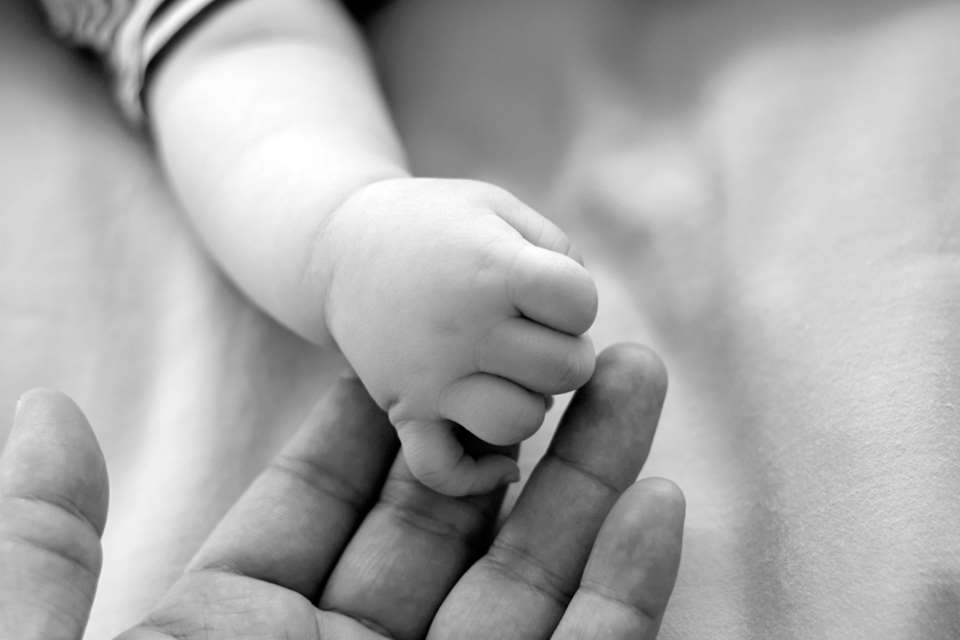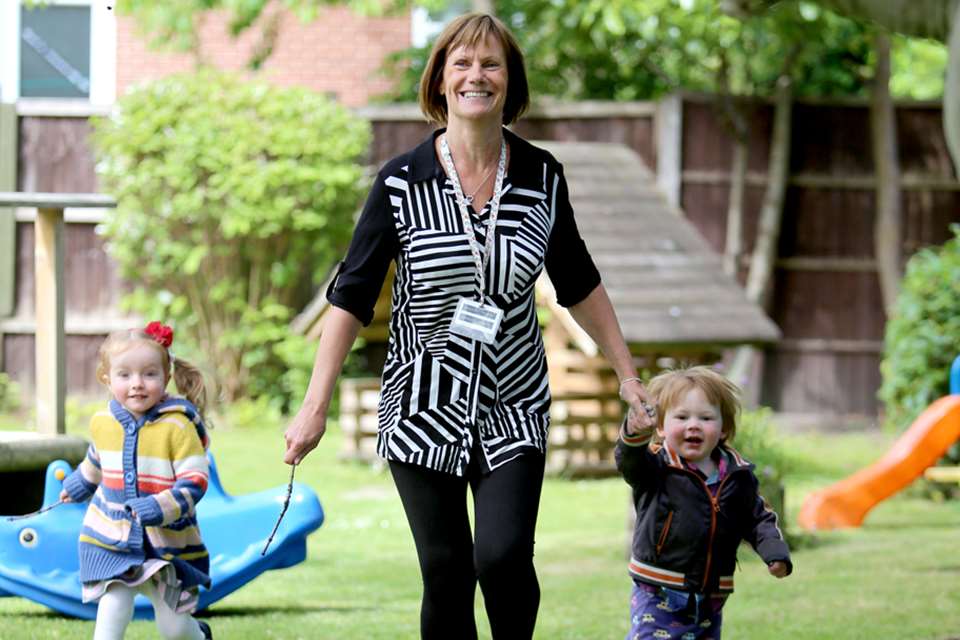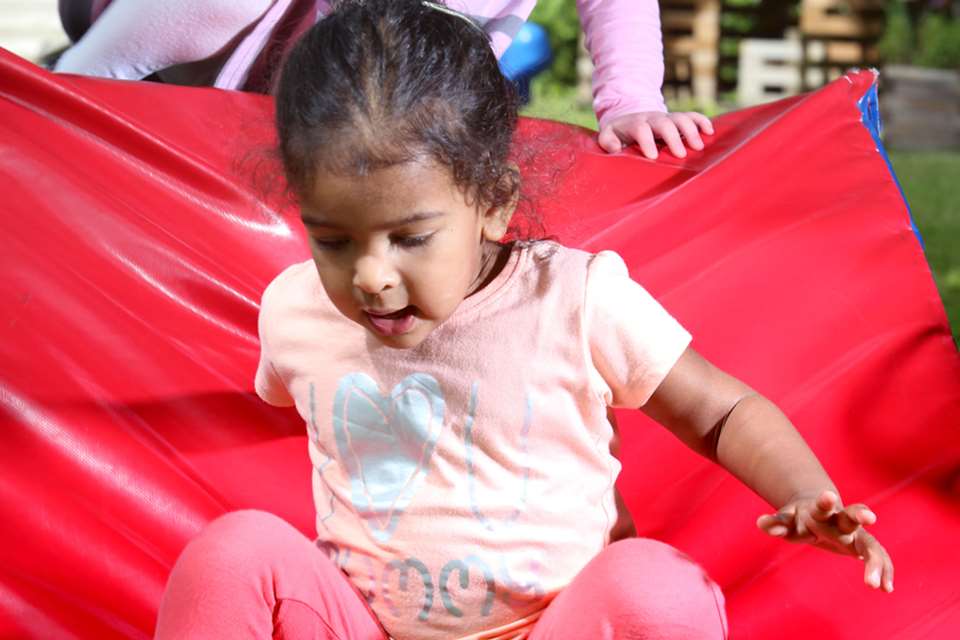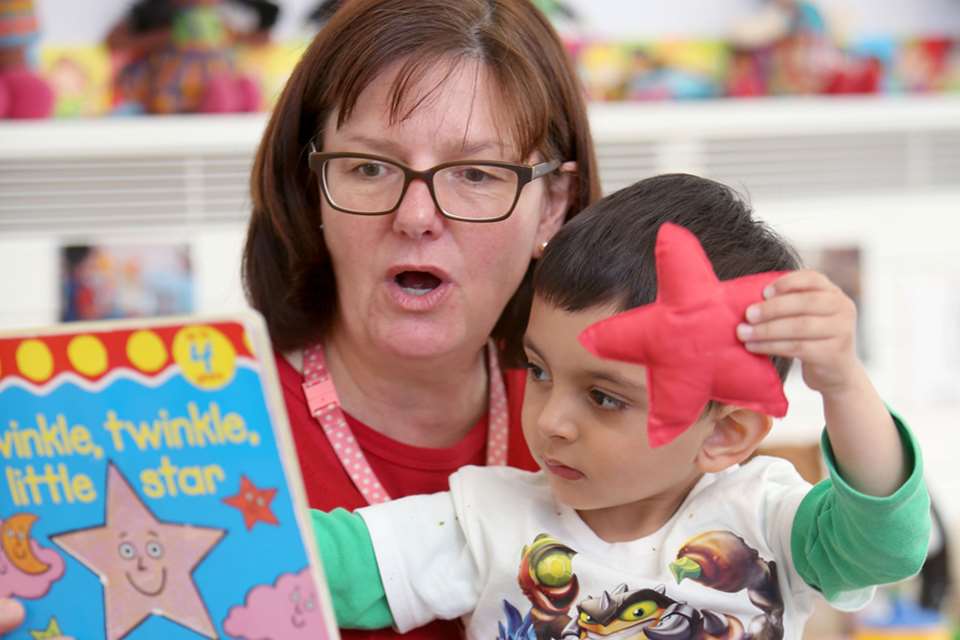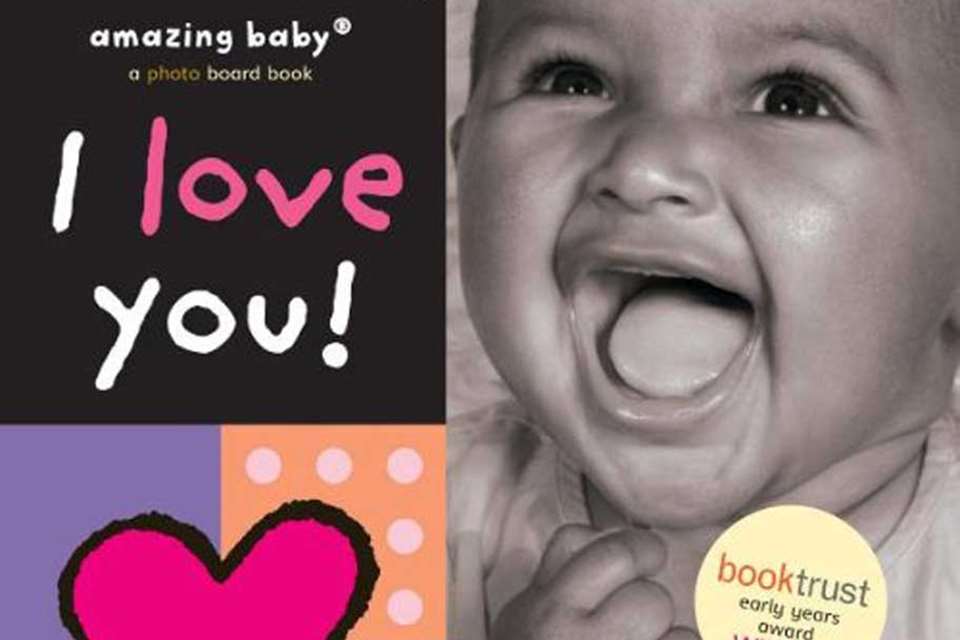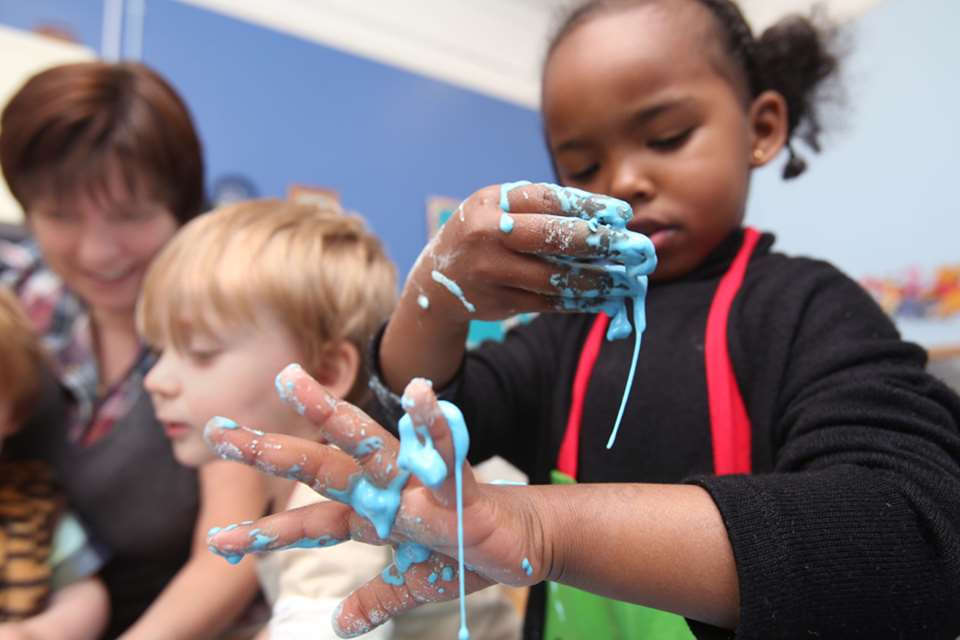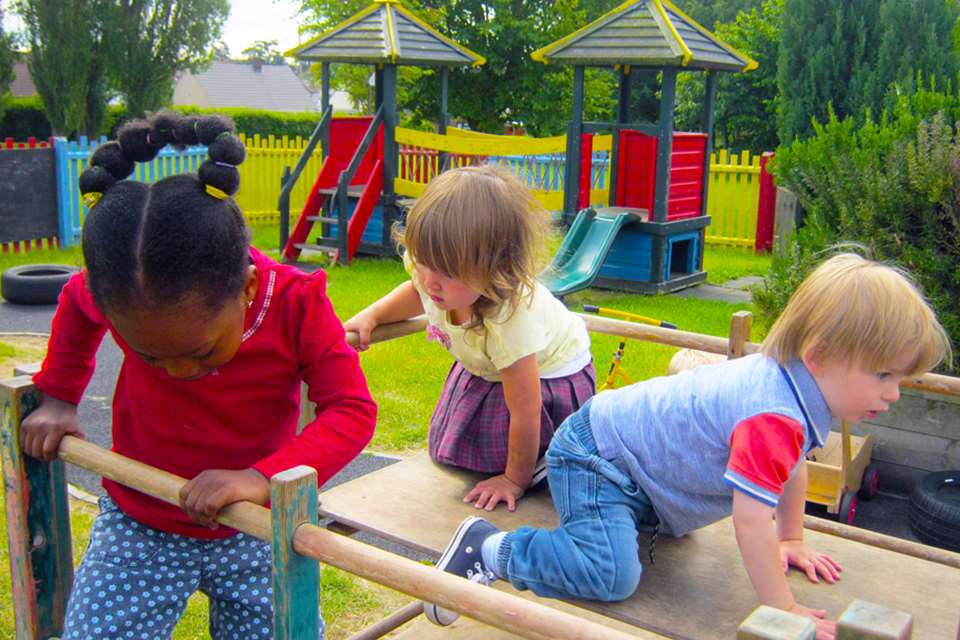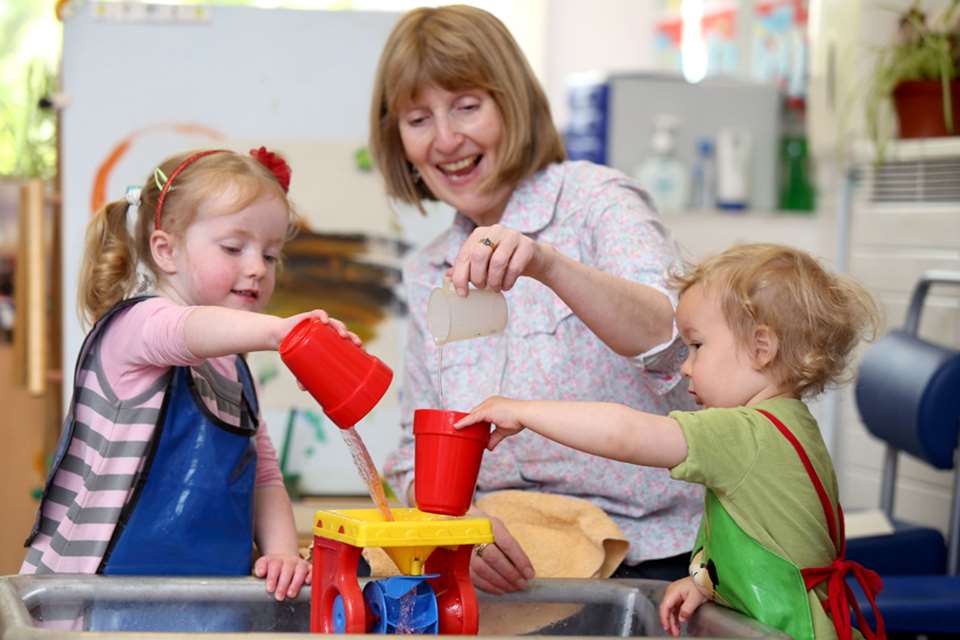Learning & Development: Personal, Social & Emotional Development - Let me be
Dr Julian Grenier
Monday, June 29, 2015
Making children feel secure and content is essential, but settings often have a narrow view of how this should be achieved - creating an environment of forced gaiety, for example, which although well-meaning does not lead to long-term well-being, explains Dr Julian Grenier
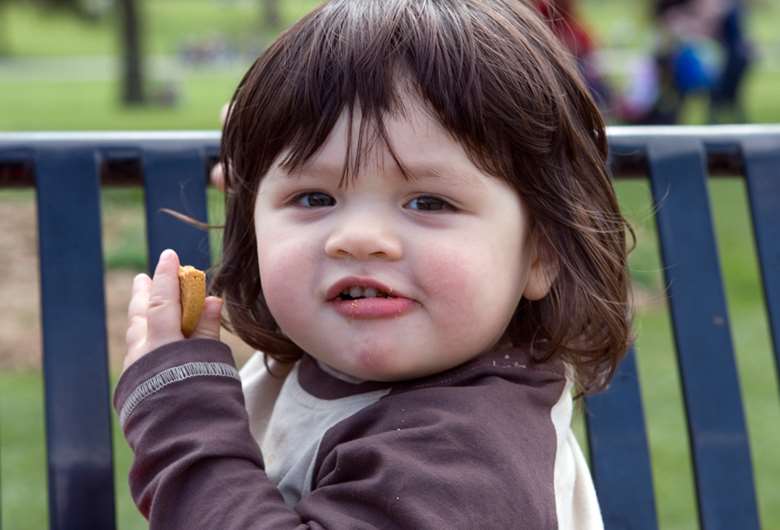
The first thoughts that come to mind when reflecting on the personal, social and emotional development for children up to the age of three will almost certainly be about ensuring that every child feels secure and content.
As I argued in 'First of all', it is essential that we work hard towards getting this basic aspect of our provision right. We also need to resist cosy assumptions that we have all the necessary procedures securely in place. We need to check that we are doing our best to help children feel secure and content through regular and careful observations of children, through dialogue with parents, and by having a robust staff supervision system in place. But, going beyond these foundations, it can be argued that early years practitioners sometimes take too narrow a view of this area of child development. This narrowness can show itself in four main areas.
JOLLY GOOD?
Firstly, there is the tendency to wish for a very up-beat atmosphere in settings, which is intended to help the children feel that they are in a happy environment. The constant focus on positive feedback, with high fives, praise for every little thing, and requests to 'show me a smile', may be well-intentioned, but they can have unwelcome repercussions.
Where babies and toddlers are regularly encouraged to give us a smile, or gently teased for being grumpy or unresponsive, they can lose touch with their own emotions. They begin to prioritise what people want them to feel over what they actually feel. In the long run, this does not help them to manage their feelings or become aware of what they find upsetting or difficult. In the same vein, it is easy to make the mistake of attracting the attention of a toddler or a baby in ways that are playful and jolly, but interrupt their concentration. For example, I recently observed a baby who was working hard to crawl, focusing all her efforts on co-ordinating her movements. Her key person across the room called out her name, causing the baby to stop, look up and smile, but also to stop what she was doing.
When we prioritise this up-beat, smiley atmosphere over quiet respect for young children's efforts, we are encouraging the children to focus on what pleases us, rather than on their sense of themselves. We can actually hamper children's self-confidence as they increasingly prefer to do easy things for a smile, high five or 'good boy', rather than difficult things that take time, require perseverance and maximise learning.
MY WAY
Second, I think that we sometimes want very young children to show a particular pattern in their emotional development and their relationships, rather than respecting how they are and working with that.
In settings with a weak key person system, this can mean that the child who constantly wants close proximity to an adult is seen as 'clingy' and problematic, rather than being understood as a typically developing young child with strong attachment relationships.
On the other hand, where there is a strong key person system in place, those children who prefer to start the day and spend their time being busy with active play can be urged into spending individual or small group time with their key person, even if they do not want to.
Some children settle themselves by doing things, and not by being with people. In the same way, some adults like to start the day's work by getting stuck in straight away, while others prefer to chat and 'touch base' with their colleagues. It is important that we work with children's emotional patterns, rather than against them: this can help them to feel that they belong, and that their ways are understood and valued.
ALL'S WELL?
Third, children's different patterns of learning can also challenge us. We are comfortable with those children who show high levels of well-being in the setting, getting involved and focusing their attention for extended periods of time.
Rightly, we worry about those who show unhappy, withdrawn or angry behaviour day in and day out; we work hard to try to understand them better, liaise with their parents, and to support them more. But there are also children whose time in the setting is characterised by outbursts of frustration, by repeatedly trying to do things which are too difficult to them, or by getting cross as others approach them when they are playing alone.
These children do not show the typical signs of well-being. They are persistent, but in a way that is difficult for us to live with; so we often direct them to things they can play with more happily, or tell them off for not sharing. If we start to think about working more sympathetically with them, then we might consider arranging more areas of the setting to create spaces where they can play on their own.
As well as having tables and carpeted areas that encourage four or more children to play together, we would have little corners and small tables where there is space for only one or two. We would respond calmly to their frustrations when they could not accomplish what they wanted, and quietly encourage them to keep trying even when we find them exasperating.
In order to deepen our reflections about children's well-being and thinking, in these three and in other respects, it can be very helpful to have a structured tool which helps us to observe more keenly.
For example, the new Sustained Shared Thinking and Emotional Well-being (SSTEW) Scale can help us to avoid over-reliance on our gut feelings and impressions, and look in a more ordered way at what we provide and how the children are responding to their environment and to us. This can help us to identify what we do well for some children, and highlight where we need to make things better for others.
RICH OR POOR?
Finally, with the expansion of free places for two-year-olds, I think we need to be acutely aware of the dangers posed by constant references to 'vulnerable children'. I am not wishing to deny the impact of child poverty and other adversities in children's lives, or to pretend that no children are vulnerable. But my concern is that through the constant description of children as 'poor' and 'vulnerable', we actually come to see the children in the ways that we are talking about them.
Each child who comes into our settings is, in their own way, an individual who is rich in potential. We are in danger of overlooking this through the increasing focus on what makes children poor, rather than what makes them rich.
This impoverished way of thinking about children can also lead to the creation of poor provision, when the rationale for new settings or free places for two-year olds is on fixing what the children lack, not engaging with and building on what they bring. When we focus only on what is lacking, on deficiencies in language, toilet training or attention, we lose our capacity to be surprised by children. We stop celebrating what they know and what they can do. We fail to offer children the richness, the opportunities and the chances to take risks - which they need if they are to flourish.
As Dame Alison Peacock, head teacher at The Wroxham Primary School in Hertfordshire and leader of the Cambridge Primary Review National Network, argued recently, 'If we have predetermined assumptions about what children can achieve, they will be offered few opportunities to confound us.'
I believe that as early years practitioners, we should want to be surprised and confounded every day by the children we work with. This element of our work can be undermined if we focus too narrowly on emotional support, without supplying risk and challenge too.
If we create an excessively up-beat atmosphere of cheerfulness and praise, we can fail to encourage children's self-motivation and desire to do things for their own sake, not just to please us. In order to support children's personal, social and emotional development, we need to plan time and opportunities to think about and to respect the children as they are, rather than as we might like them to be.
Dr Julian Grenier is head teacher of Sheringham Nursery School and Children's Centre, London - a National Teaching School - and is a National Leader of Education.
MORE INFORMATION
- The Sustained Shared Thinking and Emotional Well-being (SSTEW) Scale: www.ioepress.co.uk
- For an introduction to SSTEW, see 'Quality time' at: www.nurseryworld.co.uk/nursery-world/feature/1150435/ learning-development-assessment-quality
- The 'key person approach' was developed by Elinor Goldschmied and Sonia Jackson in their book, People Under Three. For an exploration of the theory, see 'Personal, Social and Emotional Development' by Julian Grenier and Peter Elfer in Early Childhood: A Guide for Students (Second Edition), edited by Tina Bruce
- Caroline Vollans argues that the excessive use of praise can be damaging to children's development in 'Good work?' (www.nurseryworld.co.uk/nursery-world/feature/1151194/ learning-development-praise-good-work)
- Creating Learning Without Limits by Alison Peacock et al argues that practitioners in the early years and in primary education need to reject narrow ideas about children's abilities and potential, and to foster learning dispositions and capacities instead.


